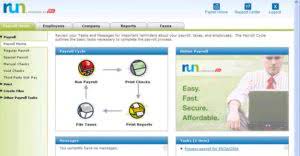While the IRS allows many small businesses to use cash basis accounting, it’s important to remember that states may have their own specific requirements. Some states might mandate accrual accounting for certain types of businesses or income levels. Always consult with a tax professional to understand the rules in your state. In cash-based accounting, income is only recognized when money is received and an expense when money is paid. An expense is recognized when a business is obligated to pay it (i.e. receives an invoice). With the cash-basis method of accounting, a business has a limited look at its income and expenses.
Tax Requirements for Accrual Basis Accounting :
While cash basis accounting offers many benefits, especially for smaller businesses, it also comes with limitations that might not be immediately apparent. Consulting with a financial professional can provide valuable insights and advice tailored to your specific business needs. Similarly, under cash basis accounting, expenses are recognized when cash is paid out. This includes all cash disbursements like payments for goods, services, rent, utilities, and salaries. Purchases made on credit are not recorded as expenses until the cash is paid out.
Cash basis accounting measures income based on
No matter the size of your company, staying informed about IRS guidelines ensures your business remains compliant while optimizing tax benefits based on chosen accounting practices. For those new to tax filing, seeking guidance from an HR business partner can be beneficial. Gross income plays a significant role in determining eligibility for tax benefits and understanding income taxes. In cash basis accounting, revenue is recognized when cash is received from customers. This method does not recognize receivables; hence, income is only recorded when there is an actual increase in cash.
Inventory and Revenue Considerations
With the help of an AI accounting agent, cash basis accounting is simple—an agent can track transactions for you, automatically categorizing income as it’s received and expenses as they’re paid out. Cash basis accounting is an accounting method that records revenues and expenses when businesses receive or pay cash instead of when they incur them. Accrual basis accounting records financial transactions when they happen, not when cash is exchanged. This method tracks revenues and expenses to match financial activities to the period they belong to. Accrual accounting records revenue when businesses earn it and expenses when they incur them, regardless of cash movement. Businesses use accounts payable and accounts receivable to track what they owe and what others owe them.
Accrual basis is more like a “full story” of your accounts, not just what is in your bank account today. With accrual basis accounting, you’ll see what you’ve earned or spent, even if cash hasn’t been received or paid. Accrual basis refers to when income and expenses are matched in the period it occurred. Accounts receivable and accounts payable are integral to income summary accrual accounting.
Is accrual or cash-basis accounting best for taxes?
That is important, as receiving or sending payment is not always immediate. The accrual method is the more commonly used method, particularly by publicly traded companies. One reason for the accrual method’s popularity is that it smooths out earnings over time since it accounts for all revenues and expenses as they’re generated. Accrual accounting adheres to the matching principle, which requires that expenses be matched with the revenues they help generate in the same reporting period. Cash basis accounting is much simpler than the accrual method of accounting and is therefore suitable for small businesses and self-employed individuals.
A business must remember that choosing the right accounting method is also about where the business intends to grow to, not just where it is currently but where it intends to grow. Some companies that start on a cash-based system eventually realize they’ve outgrown this method and must begin the process of switching to accrual. Accrual accounting should be used when seeking accurate performance measurement, managing significant inventory, pursuing external financing, or approaching the $26 million revenue threshold. It becomes essential when business complexity increases, when contemplating business valuation or sale, or when needing to comply with GAAP cash basis accounting measures income based on for stakeholder reporting. This straightforward approach eliminates much of the complexity that makes accounting intimidating for many entrepreneurs.
Benefits of Cash Method of Accounting
- Schedule a personalized BILL Spend & Expense demo to learn more about what it can do for your company’s financial health.
- Since income is only reported when you receive it and expenses when you pay them, you might be able to defer some tax liabilities to the next year.
- However, unless a statement of cash flows is included in the financial statements, this approach does not reveal the ability of a business to generate cash.
- Maintaining organized and detailed records is crucial for a smooth audit process.
- An accrual-based system may better meet your needs if you have inventory, accounts payable, or need more detailed financial information.
It does not show your liabilities which makes it hard to determine a company’s profitability. Some businesses may benefit because you only record income and expenses when cash is exchanged, which means you control the timing of transactions. The accrual method gives a more accurate view of a company’s financial health by including accounts receivable and payable. Accrual basis accounting records income when earned and expenses when incurred, regardless of cash flow. Businesses also match expenses to the period they occur in, regardless of cash flow. Accrual accounting may result in higher taxable income early on, but it gives a more accurate picture of financial performance over time.
Cash Basis Accounting for Small Businesses: A Complete Guide
- While cash accounting offers simplicity and direct cash flow visibility, accrual accounting provides the comprehensive financial picture necessary for sophisticated business management.
- The workspace is connected and allows users to assign and track tasks for each close task category for input, review, and approval with the stakeholders.
- Especially when you are dealing with prepaid expenses and unearned revenue.
- Although the key to a cash method is the ease of use (it only accounts for cash paid or received), this strategy might overstate the financial health of a company.
- The cash basis system is usually used in small business accounting because of its simplicity and ease, while the accrual basis system provides a more accurate picture of your business performance.
Accrual-based businesses rely on a separate cash flow statement beyond the income statement and balance sheet, which becomes an essential management tool. Accounts receivable aging reports guide collection efforts while providing visibility into expected incoming cash. Cash accounting should be used when simplicity matters more than comprehensive financial visibility. It’s ideal for service businesses without inventory, operations with immediate payment cycles, and scenarios where the business owner handles finances without dedicated accounting expertise. Cash accounting works best when cash flow represents the primary financial concern. Choosing between cash and accrual accounting affects when businesses recognize income and expenses.
- These accounts help track money owed by customers and money owed to suppliers.
- For example, under accrual accounting, a business records revenue when it delivers goods or services to a customer, even if payment is received later.
- The IRS requires you to report taxable income and deductions in the year they’re paid or received.
- This is a simple and straightforward accounting method as compared to the accrual method, which is much more complex.
- Keep in mind, however, that applicable accounting methods may differ by jurisdiction, so professional advice is advisable.
- In the financial trenches of business management, the accounting method a company chooses lays down a foundation for virtually every financial decision a business makes.
How does cash accounting work?
At any given time, an investor might believe a company is making a profit when they are actually hemorrhaging money. Likewise, the cash method does not demonstrate your customer’s Bookkeeping for Startups liabilities to the business or any debts owed. This can result in forgetting about unpaid debts and losing track of valuable assets.






